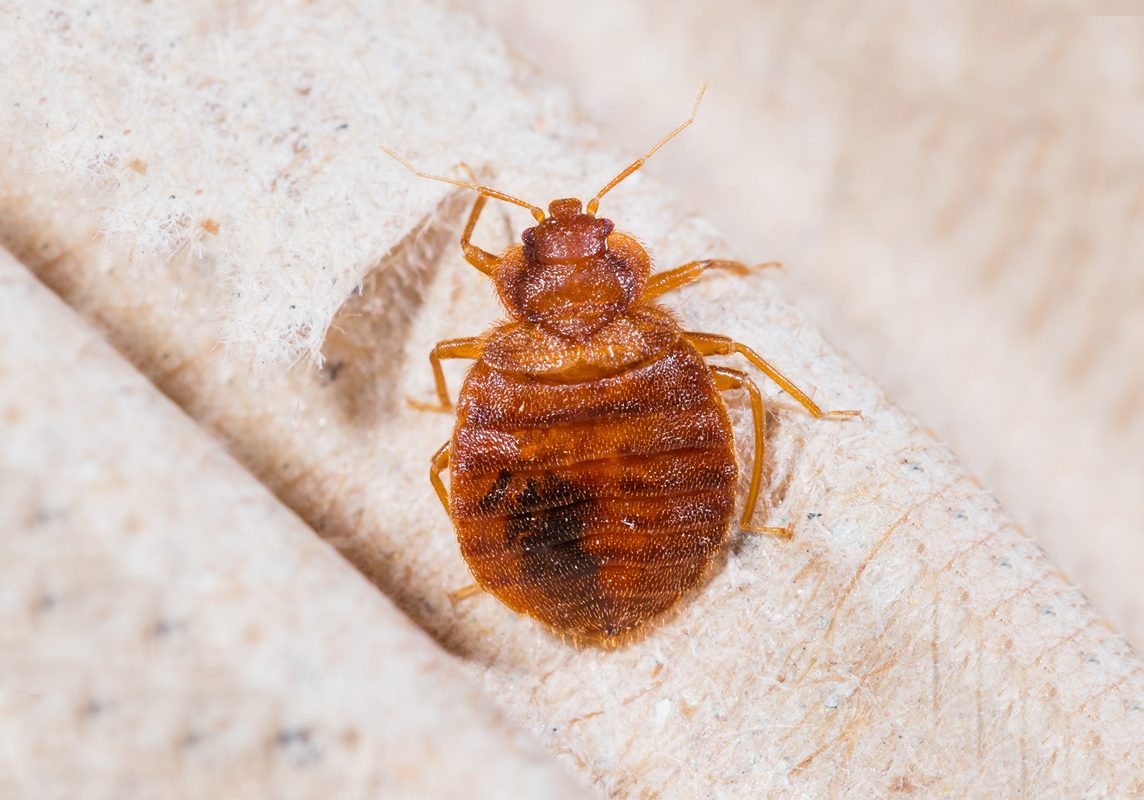Inspect
For every bed bug treatment, our estimators will thoroughly review your home, determine the severity of the infestation, and prepare a quote for your service'
Prepare
Bedding, clothes, and linens need to be removed from infestation areas and thoroughly washed. Family and pets will need to be out of the home for the duration of the treatment. This can take as long as six hours
Treat
Our treatment procedure involves a professional-grade bed bug treatment material.
Identifying Bed Bugs
"This is a family-run company and it shows in the dedication to their client satisfaction. Everyone is professional, friendly, and incredibly responsive. 10/10 recommend their services to anyone!"
Nicole H.
Bed Bug Control

What gives you the creeps? Is it something that goes bump in the night, a howling wind, thoughts of ghosts and goblins, or ... blood-sucking minions living in your mattress? It could be Bed Bugs. These blood suckers get their name from their preference to feed on a bed's occupants at night, while people sleep comfortably. The good news is that they don't transmit disease, although some people may have an allergic reaction. The bad news is that they are very difficult to eliminate. lf you suspect you are being bitten by Bed Bugs, if you have red itchy marks or see small reddish bugs in your sleeping quarters, read on and call us for more information. You need a professional to identify and eradicate Bed Bugs.
Bed Bugs are "hitchhikers" extraordinaire! They will hide in suitcases, boxes, and shoes to be near a food supply. They are elusive, nocturnal creatures and can hide behind baseboards, electrical switchplates, picture frames, and even wallpaper. But, they prefer to be in bed with you. They feed for a few minutes at night and hide in your mattress, box spring, or favorite recliner, all the while making more.
Bed Bugs Bed Bugs feed only on blood, usually from mammals or birds. Their life cycle, under good conditions, takes 4-5 weeks. They attach their small pearly-whitish eggs to surfaces, usually in crevices (harborages) where the bugs hide in loose groups or clusters. A female may lay 200 - 500 eggs in her lifetime. These bugs will often produce a series of bites in "rows," or fairly straight lines, usually along an edge beside an item of clothing or a bed sheet that was lying against their human host's skin at the time the bugs fed. Bed Bugs give off a distinctive, "musty, sweetish" odor, which may be obvious to many humans' sense of smell, where a number of bugs have congregated in a shared harborage. Fewer than 50 adult bugs (based on actual collected specimens), along with their offspring, present for no more than a few weeks, have been observed to produce such a detectable odor. They routinely deposit partially digested remnants of prior blood meals in their hiding places, as a "rusty" or tarry residue.



